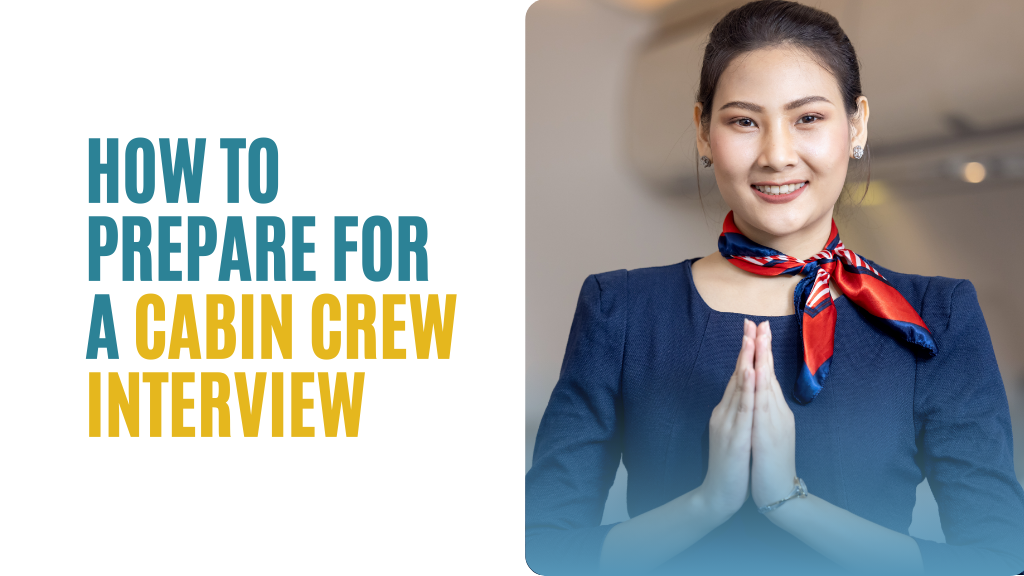Becoming a cabin crew member is one of the most exciting career choices for those who dream of traveling the world, meeting new people, and being part of the glamorous aviation industry. However, behind the glamour lies a demanding and competitive selection process. Airlines look for individuals who are not just well-groomed and professional but also adaptable, empathetic, safety-conscious, and excellent communicators.
If you are preparing for a cabin crew interview, you need more than just confidence—you need strategy. Here’s a step-by-step guide with expert insights to help you stand out and secure your dream role in the skies.
1. Understand the Role of Cabin Crew
Before you attend the interview, you must have a clear understanding of what a cabin crew member does. Airlines expect candidates to know that the job is not just about serving food and drinks but also about ensuring passenger safety, handling emergencies, and delivering exceptional customer service.
Key Responsibilities Include:
- Conducting pre-flight safety checks
- Demonstrating safety procedures to passengers
- Providing first aid and handling emergencies
- Serving meals, beverages, and assisting passengers with special needs
- Maintaining calm in stressful situations
- Representing the airline’s image and values
Expert Tip: Research the specific airline you’re applying to. Each airline has its unique culture and expectations—Emirates focuses heavily on luxury service, while IndiGo emphasizes efficiency and hospitality. Tailor your responses accordingly.
Read Also – Pilot Training in South Africa
2. Research the Airline Thoroughly
One of the most common mistakes candidates make is walking into the interview without knowing much about the airline. Recruiters want to see that you’ve made an effort to understand their brand, fleet, and values.
Things to Research:
- Company history and reputation
- Destinations they fly to
- Awards or recognitions
- Cabin crew training programs
- Their mission, vision, and customer service philosophy
Expert Tip: Use the airline’s official website, LinkedIn page, and recent news articles to stay updated. Mentioning these facts in your answers shows genuine interest.
3. Work on Your Grooming and Presentation
First impressions matter the most in a cabin crew interview. Airlines have strict grooming standards because cabin crew members are the face of the airline.
For Women:
- Neatly styled hair (usually tied up in a bun or neat ponytail)
- Light, natural makeup
- Neutral nail polish
- Formal business attire (well-fitted skirt and blouse or business suit)
For Men:
- Clean shave or neatly trimmed beard
- Well-groomed hair
- Formal suit with tie
- Polished shoes
Expert Tip: Airlines often check for visible tattoos, scars, or piercings that might not align with their standards. Make sure to comply with these requirements.
4. Master the Common Interview Questions
Cabin crew interviews usually include personal, situational, and behavioral questions. Being prepared with structured answers can help you remain confident.
Frequently Asked Questions:
- Tell us about yourself.
- Why do you want to become a cabin crew member?
- Why do you want to work with our airline?
- Describe a time when you handled a difficult customer.
- How do you deal with stress or pressure?
- What would you do if a passenger refuses to follow safety instructions?
Expert Tip: Use the STAR Method (Situation, Task, Action, Result) to answer situational questions. It makes your response structured and impressive.
5. Practice Group Discussions and Roleplays
Most airlines conduct group discussions (GD) and roleplay activities to evaluate teamwork, communication, and problem-solving skills.
In Group Discussions:
- Speak clearly and confidently, but don’t dominate
- Listen actively and respect others’ opinions
- Contribute meaningful points rather than repeating ideas
- Maintain positive body language
In Roleplays (Example: Dealing with an angry passenger):
- Stay calm and empathetic
- Use polite, professional language
- Offer solutions rather than excuses
- Show that you can balance firmness with customer service
Expert Tip: Practicing with friends or mentors can boost confidence before the real test.
6. Improve Your Communication Skills
Fluent English is a must for most international airlines, and many Indian airlines also prefer candidates who know Hindi or other regional languages.
How to Improve:
- Practice speaking in English daily
- Watch aviation-related videos to learn industry terminology
- Work on pronunciation and tone (avoid sounding too casual)
- Improve active listening skills, as communication is two-way
Expert Tip: Clear, polite communication with a smile goes a long way. Recruiters often judge candidates from the moment they greet them.
7. Prepare for the Physical and Medical Requirements
Airlines have strict physical and medical standards to ensure safety and efficiency during flights.
Basic Requirements Usually Include:
- Minimum height (varies by airline, often around 155-160 cm for women, 170 cm for men)
- Proportionate weight according to height
- Good eyesight (with or without corrective lenses)
- Ability to swim (for water emergency training)
- General good health (no chronic illness or major visible scars)
Expert Tip: Be honest about your health details. Any falsification can lead to disqualification later.
8. Build Confidence Through Mock Interviews
Mock interviews help you practice real interview scenarios in a stress-free environment. Many aviation institutes, including Top Crew Aviation, offer professional interview training sessions where experts guide you on posture, voice modulation, and answering techniques.
Expert Tip: Record yourself while practicing. Watching your own body language and speech patterns helps in self-improvement.
9. Demonstrate Key Cabin Crew Qualities
Recruiters look for specific personality traits in cabin crew members. During the interview, make sure you highlight these qualities:
- Empathy – Show that you genuinely care about passengers’ needs
- Teamwork – Cabin crew must work seamlessly as a team
- Adaptability – Be ready for changing schedules and unexpected situations
- Patience – Essential for dealing with difficult passengers
- Cultural awareness – Airlines serve passengers from around the world
Expert Tip: Share real-life examples of when you’ve shown these qualities, whether in a job, school, or personal experience.
10. Stay Calm, Positive, and Professional
Finally, remember that airlines want candidates who can remain calm under pressure. Interviews can be stressful, but keeping your composure is part of what recruiters want to see.
Do’s During the Interview:
- Smile naturally and maintain eye contact
- Sit with good posture
- Listen carefully before answering
- Speak confidently but respectfully
- Thank the interviewer at the end
Expert Tip: Even if you don’t know the answer to a question, stay composed and respond politely. Confidence matters more than perfection.
Conclusion
Preparing for a cabin crew interview is about more than just looking good—it’s about showing that you have the skills, personality, and professionalism to represent an airline and ensure passenger safety and comfort. By researching the airline, practicing interview questions, improving communication, and focusing on grooming and confidence, you’ll be one step closer to securing your dream role.
Remember, every airline looks for individuals who can combine safety awareness with excellent service skills. With the right preparation and mindset, you can shine during your interview and begin your exciting journey in aviation.
Top Crew Aviation helps aspiring cabin crew candidates with expert training, mock interviews, and grooming sessions to ensure success in airline selection rounds. With proper guidance and preparation, your dream of becoming a cabin crew can take flight!


